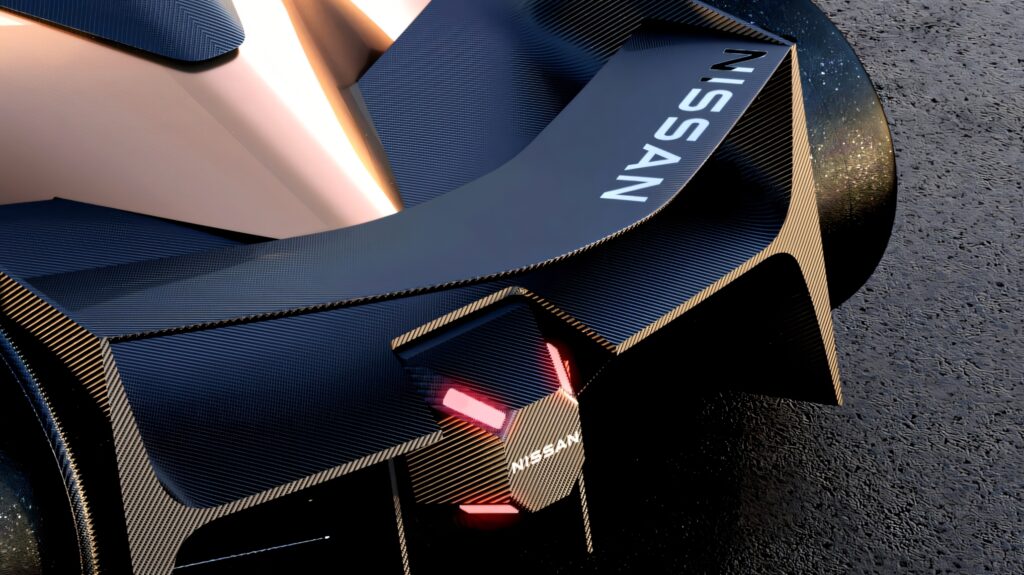
- Nissan is exploring using Formula E to develop future electric performance car prototypes.
- A future Nissan high-performance prototype could use Formula E-sourced electric motors.
- As part of the new Gen4 racing regulations, Formula E cars will be able to produce 800 hp.
Nissan is in urgent need of a turnaround. While focusing on mainstream vehicles might seem like the obvious path back to stability, the company is also exploring something a bit more ambitious: high-performance electric cars that could benefit from the technology developed by its Formula E team.
var adpushup = window.adpushup = window.adpushup || {que:[]};
adpushup.que.push(function() {
if (adpushup.config.platform !== “DESKTOP”){
adpushup.triggerAd(“0f7e3106-c4d6-4db4-8135-c508879a76f8”);
} else {
adpushup.triggerAd(“82503191-e1d1-435a-874f-9c78a2a54a2f”);
}
});
Read: Nissan’s Full-Size SUV Gets The NISMO Treatment
According to Tommaso Volpe, who heads Nissan’s Formula E operations, the brand is actively looking at ways to connect its racing division with Nismo, the company’s performance arm. One idea on the table is to create “some prototypes based on normal chassis that can help the Nismo division to enhance the performance of electric cars,” Volpe said.
That would mark a new level of collaboration between motorsport and road car development at Nissan, especially as the company works to re-establish its identity in the EV space.
A New Kind of Nismo
Nissan does have a Nismo-branded version of the Ariya in its range, but it’s a softer model, not necessarily the kind of hardcore performer you might expect from Nismo. Volpe noted that it “has no influence from Formula E,” but in the future, the team could first develop a prototype, and then the company would be able to use it as a base for future products.
According to Autocar, any such future prototype from the team could use the same basic dual-motor system as the current Formula E race car, which can churn out 469 hp, but as part of the 2026/2027 season, will be upgraded to deliver roughly 800 hp.

Track Tech Meets the Street
Volpe believes this next-generation powertrain could be the point where race-bred innovations start to filter more directly into Nissan’s road cars. “The development of the Gen4 cars will be when potential transfers will come from the racing cars to future [road] products, because the level of performance and efficiency will be pushed even more to the limit,” he told the magazine.
var adpushup = window.adpushup = window.adpushup || {que:[]};
adpushup.que.push(function() {
if (adpushup.config.platform !== “DESKTOP”){
adpushup.triggerAd(“bb7964e9-07de-4b06-a83e-ead35079d53c”);
} else {
adpushup.triggerAd(“9b1169d9-7a89-4971-a77f-1397f7588751”);
}
});
He also noted that the Gen4 Formula E cars will feature all-wheel drive. That aligns well with Nissan’s experience in developing AWD electric systems, such as the one used in the Ariya, where the car can control grip independently at each wheel. Volpe sees this as a strong area of overlap between racing and road-going EVs.
“The regulations of Gen4 have been written in an open conversation with manufacturers,” he added. “One of the reasons all-wheel drive is there is because of a strong push by Nissan and some other manufacturers, because all-wheel drive is the trend for the core business in the future.”
Nissan chief executive Ivan Espinosa has previously said the brand has “exciting plans” for several future sports cars. In fact, he has expressed interest in there being upwards of four or five halo models for the brand.
var adpushup = window.adpushup = window.adpushup || {que:[]};
adpushup.que.push(function() {
if (adpushup.config.platform !== “DESKTOP”){
adpushup.triggerAd(“bb7964e9-07de-4b06-a83e-ead35079d53c”);
} else {
adpushup.triggerAd(“9b1169d9-7a89-4971-a77f-1397f7588751”);
}
});

#Nissans #Electric #Halo #Born #Formula #Racetrack

